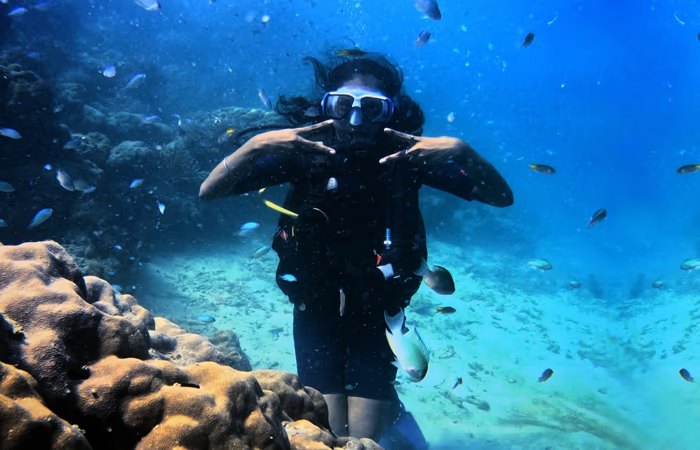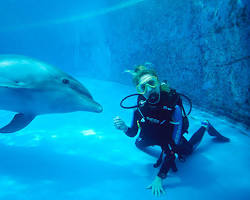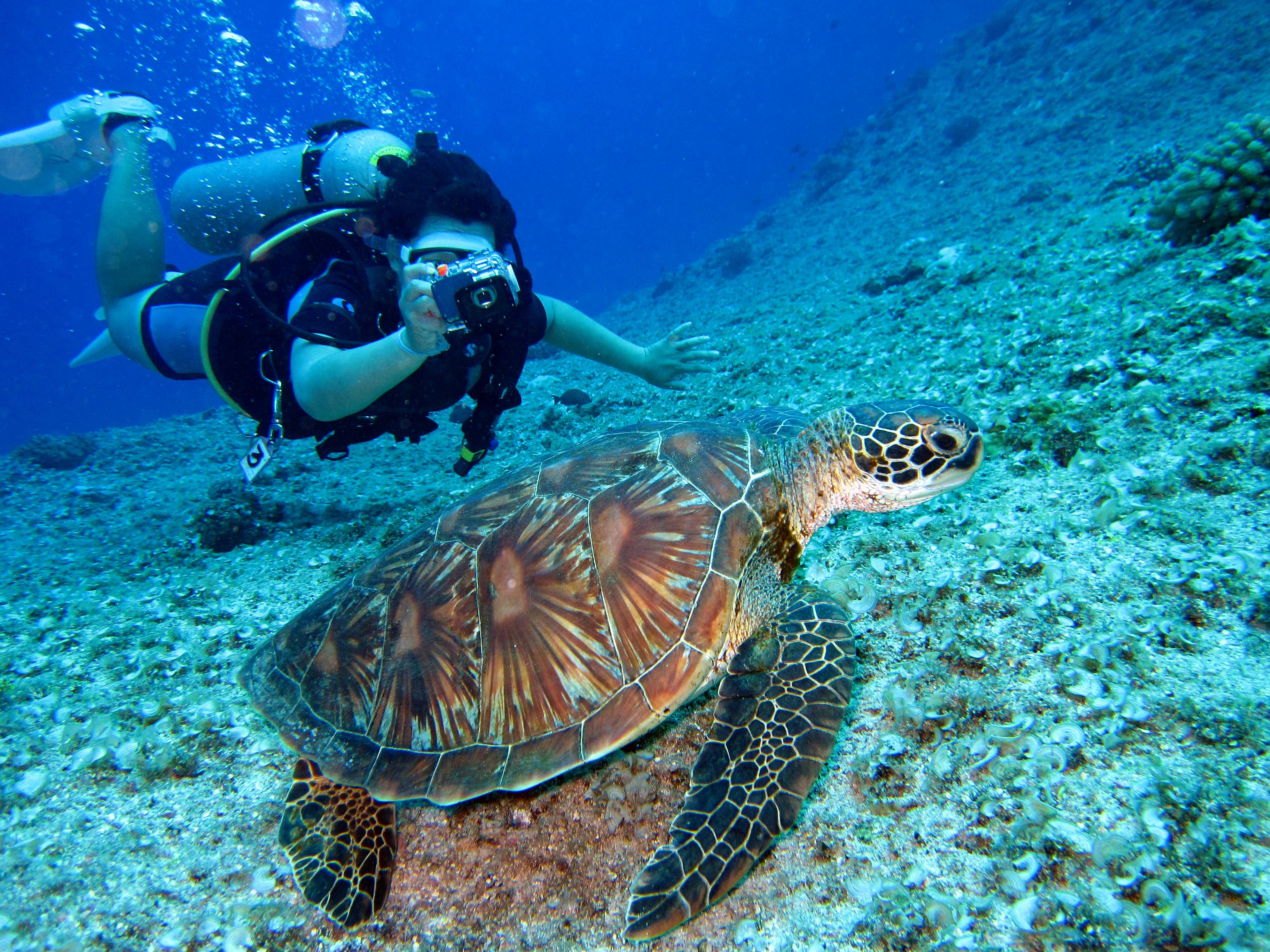
Scuba diving is a water activity where participants use a self-contained underwater breathing apparatus (SCUBA) to explore underwater environments. Divers carry a tank of compressed air or a mixture of gases to breathe while submerged. Training and certification are essential for safe diving, covering skills like buoyancy control, equalization, and emergency procedures. Popular dive locations include coral reefs, shipwrecks, and underwater caves. Always prioritize safety and follow diving guidelines to enjoy this exhilarating experience.
To learn scuba diving, follow these steps:
1. Find a Certified Dive School: Look for a reputable scuba diving school or center that is certified by recognized agencies like PADI (Professional Association of Diving Instructors) or NAUI (National Association of Underwater Instructors).
2. Complete a Beginner Course: Enroll in a beginner or open water diver course. This typically includes classroom sessions, confined water (pool) training, and open water dives. Topics cover equipment usage, safety procedures, and underwater skills.
3. Acquire Basic Gear: Invest in essential scuba gear such as a mask, snorkel, fins, and a wetsuit. Most training centers provide tanks, regulators, and other equipment during the courses.
4. Get Confined Water Training: Practice basic skills in a controlled environment like a pool. This includes mask clearing, regulator retrieval, buoyancy control, and emergency procedures.
5. Do Open Water Dives: Apply what you've learned in actual open water environments. These dives, usually conducted in the ocean or large bodies of water, help you gain experience and confidence.
6. Complete Certification: After successfully finishing the course and required dives, you'll receive a certification card. This card allows you to dive independently or with a buddy within specified depth limits.
Consider advanced courses to enhance your skills. Specialized certifications like deep diving, underwater navigation, or wreck diving open up new diving opportunities. Keep up with diving knowledge, safety practices, and any changes in equipment. Regular diving helps maintain and improve your skills. Always prioritize safety, adhere to diving guidelines, and consult with medical professionals if you have health concerns before starting scuba diving training.
Certification Levels:
1. Basic open water Diver certification: The initial scuba diving certification is often referred to as the "Open Water Diver" certification. This certification is your entry point into the world of scuba diving. It covers fundamental skills and knowledge needed to dive safely and independently, within specified depth limits. Popular certifying agencies for Open Water Diver certification include PADI (Professional Association of Diving Instructors), NAUI (National Association of Underwater Instructors), and SSI (Scuba Schools International). Completing this certification enables you to explore the underwater world and lays the foundation for further advanced courses and specialties.
2. Advanced Open Water certification: After obtaining the Open Water Diver certification, the next level in scuba diving is often the "Advanced Open Water Diver" certification. This course builds on the skills learned in the Open Water course and introduces divers to various specialty areas. It typically includes five adventure dives, each focusing on a specific aspect of diving, such as deep diving, navigation, night diving, and others.
3. Rescue diver certification: After obtaining the Advanced Open Water Diver certification, divers often choose to pursue further training and certifications. The next level in many scuba diving education systems is the "Rescue Diver" certification. This course focuses on developing the skills needed to prevent and manage dive-related emergencies, emphasizing rescue techniques and teamwork.
Beyond Rescue Diver, some divers may decide to advance to the professional level by undertaking the "Divemaster" course. Divemasters are qualified to assist instructors and guide certified divers.
Specialty courses are also available, allowing divers to focus on specific areas of interest such as deep diving, wreck diving, underwater photography, or enriched air (nitrox) diving.
4. Dive Master certification: This course focuses on leadership, supervision of dive activities, and assisting with diver training. Divemasters can guide certified divers, assist instructors during courses, and play a key role in dive operations.
5. Assistant Instructor :After completion of Dive Master course some divers choose to become Assistant Instructors, assisting with teaching scuba courses under the supervision of a qualified instructor.
6. Open Water Scuba Instructor : The pinnacle of recreational diving education is becoming a certified Open Water Scuba Instructor. Instructors teach and certify new divers, conduct specialty courses, and contribute to the diving community.
Beyond becoming an Open Water Scuba Instructor (OWSI), there are additional levels and specializations within scuba diving. Some possibilities include:
Master Scuba Diver Trainer (MSDT): This certification allows instructors to teach a variety of specialty courses, making them more versatile in their teaching capabilities.
Course Director: A Course Director is a high-level instructor responsible for training and certifying new scuba instructors. Achieving this status requires significant experience and expertise.
Technical Diving Instructor: For those interested in more advanced diving, becoming a certified Technical Diving Instructor allows you to teach technical diving courses, which involve extended depth and decompression diving.
Public Safety Diver: This specialization involves training for search and rescue operations, often in cooperation with law enforcement or emergency services.
Instructor Trainer: Some individuals pursue the path of becoming an instructor of instructors, teaching and certifying new scuba instructors. This level often involves becoming a Staff Instructor or higher, depending on the agency.
It's important to note that the specific titles and certifications may vary between scuba diving agencies, and the progression is often a personal choice based on individual interests and career goals within the diving community.







Comments
Rajeev Roy
Amit Mishra
Rajesh Jaishwal